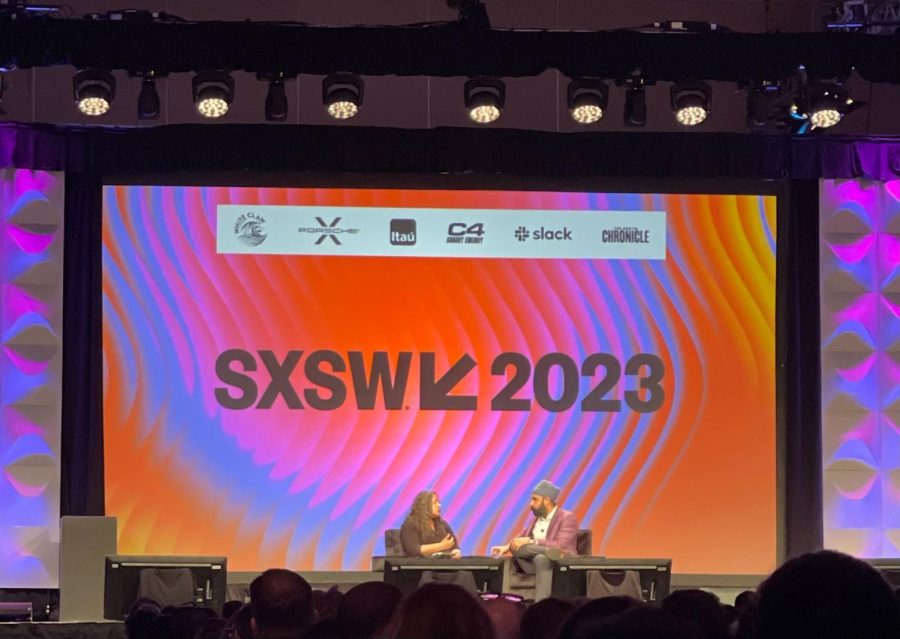SXSW 2023 opening speaker Simran Jeet Singh encourages audience to look for good in times of darkness
March 11, 2023
Eleven years old.
That’s how old Dr. Simran Jeet Singh was when a referee at a soccer game asked to pat down his turban to check for “knives and bombs.” It marked the first time someone called Singh a terrorist.
Growing up in Texas in the late ‘80s and ‘90s, Singh, a Punjabi Sikh, said he faced bigotry consistently throughout his childhood. Since the release of his book “The Light We Give: How Sikh Wisdom Can Transform Your Life” in 2022, Singh has made strides in addressing ways to effectively deal with discrimination.
On Friday, Singh discussed these coping mechanisms and his experiences with racism in the opening address of this year’s South by Southwest conference with a reflective speech about optimism in the face of disillusionment, drawing from his own incidents facing racism and growing up in the south as a Sikh.
“I’m not sure why my parents thought Texas would be the place to raise turban-wearing boys, … but Texas is home,” Singh said. “We saw ourselves as typical Americans but at the same time, we knew that many Americans didn’t see us as that. One of the challenges we had to figure out was, ‘How do we deal with the racism that came our way?’”
As a teenager, Singh grappled with the negative emotions and stress from being discriminated against, which prompted him to look for a healthier way of processing these experiences.
“How do we find light when everything feels hopeless?” Singh said. “How do we love people who don’t love us? How do we find the humanity of people who don’t care? It’s a tough question, and it’s not one that our society is doing a very good job of figuring out.”
Turning to Sikh traditions, Singh highlighted the importance of Chardi Kala, a Punjabi phrase meaning “eternal optimism.”
“(Chardi Kala) is not about escaping,” Singh said. “It’s not about toxic positivity. It’s about recognizing the challenges for what they are and stepping into them with your values and finding the light within those moments.”
Reflecting on the importance of hope amid political division, Singh discussed the aftermath of the terrorist attacks on 9/11 and how his family dealt with the flood of death threats and racism that came afterward.
“During the days, we would watch the news trying to understand what had happened to our country,” Singh said. “In the evenings, we would huddle by the phone and listen to accounts of people in our community being attacked or assaulted.”
At 18 years old, Singh said he had a difficult time looking for reasons to be hopeful until his father pointed out the actions of their neighbors and community members, who had been checking in on them.
“My father said, ‘What, didn’t you notice that your neighbors have been coming by to give us food? Didn’t you notice your teachers have been calling to check in on you,’” Singh said. “The lesson has stuck with me forever. In times of difficulty, we focus on the difficulty, and we forget to notice the good that is also all around us.”
Acknowledging that disillusionment can take its toll on people, Singh emphasized the lesson he learned from his father’s refusal to lose sight of the light in the world, which was met with a standing ovation from the crowd.
“I believe people are good,” Singh said. “When times feel tough, when it feels like people are terrible and there’s no hope for the world, I walk outside and I just watch people. And what I’ve found time and time again, is that people are good.”



